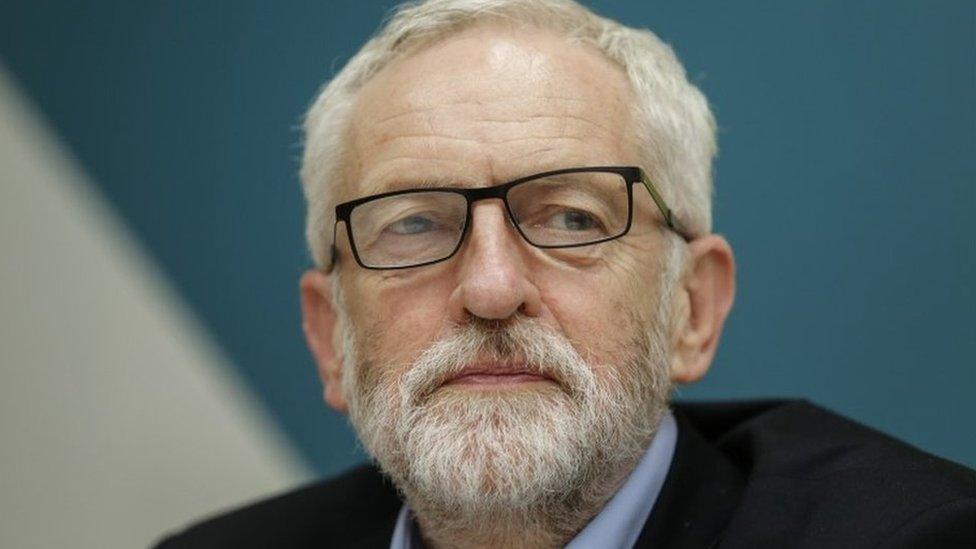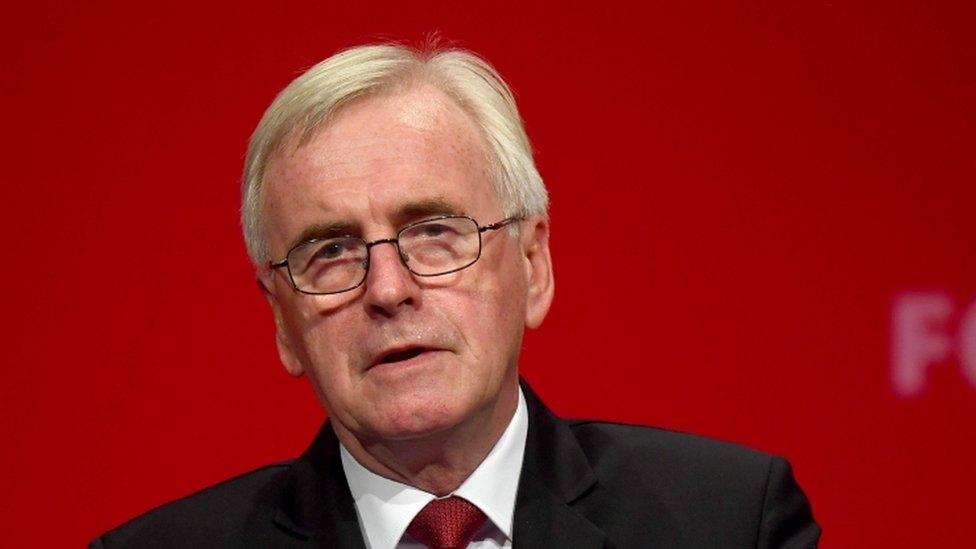Jeremy Corbyn will stand down if Labour loses next election, says ally
- Published

Labour leader Jeremy Corbyn will stand down if he does not win power at the next general election, his close ally John McDonnell has said.
The shadow chancellor told GQ magazine, external he "can't see" how Mr Corbyn could stay on if he lost for a second time.
But Mr McDonnell ruled himself out as a successor, saying the next leader should be a woman.
When asked about the next election, a source close to Mr Corbyn said: "We're in it to win it."
Mr Corbyn took over from Ed Miliband as leader in 2015 and saw off a challenge from Owen Smith the year after.
Under his leadership, Labour did better than expected in the snap 2017 election but still got 56 fewer seats than the Conservatives.
In an interview for GQ with Alastair Campbell, Tony Blair's former adviser, Mr McDonnell was asked whether it was possible for Mr Corbyn to carry on if he failed to win next time around.
He replied: "I can't see... I think it is the same for my own personal position, I can't see so.
"What we'd do is as the tradition, which is have an election for a new leader."

John McDonnell suggested his own position would be untenable if Labour lost
Mr McDonnell touted shadow education secretary Angela Rayner as a possible successor to Mr Corbyn.
"I'm still of the view now that whoever comes after Jeremy has got to be a woman," he said,
"We've got to have a woman leader. If you look at the new youngsters that have come through, they are fantastic."
Others named as potential future leaders include shadow business secretary Rebecca Long-Bailey and shadow foreign secretary Emily Thornberry.
Mr McDonnell said it was possible for Labour to win the next election, but if the party did not win an outright majority, it would not enter a coalition or strike any deals with other parties.
If Labour failed to win a majority, he said he would rather have another election in quick succession to give it the mandate it needed to operate in government.